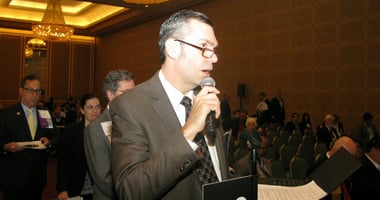It has been commonly believed for some years now that prolonged solitary confinement in prison is...
Obama Bans Solitary Confinement for Juveniles in Federal Prisons
 |
Solitary confinement “has been linked to depression, alienation, withdrawal, a reduced ability to interact with others, and the potential for violent behavior,” the president wrote in an op-ed in The Washington Post. “Some studies indicate that it can worsen existing mental illnesses and even trigger new ones. Prisoners in solitary are more likely to commit suicide, especially juveniles and people with mental illnesses.”
In July 2015, the president announced that he had asked Attorney General Loretta Lynch to review “the overuse of solitary confinement across American prisons.” In response, the Department of Justice (DOJ) issued a report this month setting out principles that would responsibly limit the use of restrictive housing at the federal, state, and local levels. In his op-ed, Obama noted his decision to adopt the recommendations of DOJ include “banning solitary confinement for juveniles and as a response to low-level infractions, expanding treatment for the mentally ill, and increasing the amount of time inmates in solitary can spend outside of their cells.”
“This is a great start,” child psychiatrist Louis Kraus, M.D., a member of the APA Council on Children, Adolescents, and Their Families, told Psychiatric News. “It follows on a decision by New York state to ban solitary confinement and other state actions to progressively decrease use of solitary confinement.” But Kraus said many state facilities, lacking the funding to provide alternative services and activities for detained juveniles, continue to effectively isolate juveniles while using other terms—such as “protective confinement.”
“Facilities are playing shell games with solitary confinement, and until there are laws against it, it will continue. We need not just legislation but the funding that these facilities require so that kids can move out of their cells for the majority of the day and participate in other activities including full-day school, which is often lacking in juvenile facilities.”
In 2012, the American Academy of Child and Adolescent Psychiatry approved a policy statement opposing the use of solitary confinement in correctional facilities for juveniles and called for an evaluation by a mental health professional of any youth confined for more than 24 hours. Similarly, in 2014 the AMA approved a resolution saying solitary confinement is detrimental to adolescent health and should be prohibited, except for extraordinary circumstances, such as those that involve protection of the juvenile, staff, or other detainees.
Kraus said an estimated 60% to 70% of youth in detention centers have an underlying mental health disorder. “The combination of a lack of mental health services in juvenile detention centers and ongoing use of solitary confinement is severely deleterious to youth.”
For related information, see the Psychiatric News article “AMA Votes to Oppose Solitary Confinement of Juveniles.”
(Image: Drop of Light/Shutterstock)





